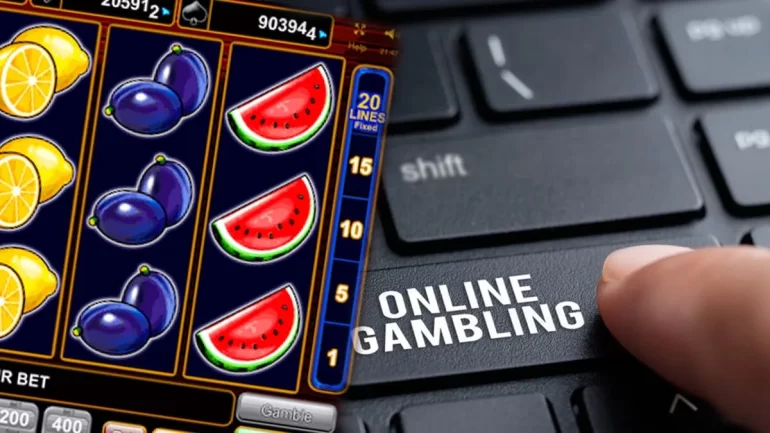Unlike their physical counterparts, web-based slots rely on computer programs known as random number generators (RNGs) to produce outcomes for each spin. This high-tech approach makes some players skeptical about whether online slots can truly offer fair chances of winning.
However major gaming providers now integrate provably fair systems into their slots. These technologies provide mathematical proof that gaming results are random and free of tampering or biases.
How Online Slots Work
Behind the flashy graphics and pulsating sounds on a typical online slot lies intricate software determining spin results. RNG algorithms generate hundreds of random number sequences per second. Each value links to a certain reel position for symbols on the slot interface.
This setup mimics the randomness of a physical slot machine. While players might recognize patterns in limited gaming sessions, over long stretches, RNG slots produce unpredictable distributions of outcomes—indicating an equitable game.
To verify the integrity of this software, gaming test labs analyze return-to-player (RTP) rates across thousands of spins. Online slots must meet RTPs, matching their advertised odds. For example, a 96% RTP slot available on a platform like BetCity NL will pay $96 for every $100 wagered on average. Regulators also check for game errors that could illegally influence payouts.
But as slots shift online, some skepticism remains around RNG technology. The provably fair solution emerged to add a new layer of transparency.
Rise of Provably Fair Systems
The concept of provably fair gaming systems originated in the bitcoin world by cryptocurrency dice sites like SatoshiDice. These sites introduced self-verification methods allowing players to independently confirm random game outcomes on the bitcoin blockchain.
Online casinos adapted this technique using cryptographic hashing protocols. Essentially, at the start of a gaming session, the casino’s RNG algorithm generates a random seed value—think of this as the DNA fingerprint for that specific round of slots played.
Using this seed, the system hashes (encrypts) the resulting outcome to represent a fingerprint of the final game results ahead of the actual spins. Players can later match the hashed outcomes against the actual reel positions to prove the spins were accurately and impartially determined by the original seed.
By tying spins to a publicly verifiable seed, players can now mathematically validate randomness themselves. Let’s examine why this boosts transparency for online slots.
Benefits of Provable Fairness
Provably fair systems mark a seismic shift for internet gaming—finally offering online slots protection against illicit slot tampering found in some offline venues. Let’s explore the major advantages:
Refutes Cheating Accusations
The provably fair model immediately defuses suspicions around manipulated slots outcomes. Players might level cheating allegations against physical slot machines with ambiguous inner workings. But by exposing the seed driving every spin, online slots enable customers to continually fact-check game integrity.
Ensures Oversight in Remote Gaming
Downloading a slots client or playing instant games in the browser means wagering remotely. Players lack the physical cues and oversight possible inside a land-based casino. The provably methodology supplies the needed checks and balances for off-site slots.
No Need to Obscure Slot Logic
While adding transparency, provable fairness also simplifies programming for gaming providers. Developers need not actively conceal slot software or logic to prevent system hacking. The verification protocols safeguard payouts from meddling at the source.
As adoption spreads, provably principles become an assumed standard across internet gaming brands. But for slots lacking such capabilities, players might rightly question if results truly issue from certified RNG systems as claimed. The proof lies in the seeds.
Implementing Open Verification Protocols
Currently, most online slot developers internally confirm their games as provably fair—allowing company staff to vet and publish seeds affirming legit gameplay. However some platforms enable custom verification, where players can personally conduct checks under their gaming account.
Here are the usual steps to verify slot spins from the player side:
- Locate the verification or provability section inside the slot options.
- Initiate a verification test (often runs between 10-100 spins).
- The system displays the server seed and hashed outcome.
- The player enters the seed into the verification tool to hash the spins themselves.
- If the player’s hash output aligns with the published hash, slot outcomes conclusively derive from the stated seed.
As demand grows for player-driven authentication, more internet gaming brands will integrate interfaces empowering customers to directly run verification tests. The ability to trigger seeds on demand and unlock slots seeds for personal auditing pushes the boundaries of transparency even further.
Self-managed verification hands oversight powers to patrons typically lacking visibility into RNG efficacy. Opening access represents a significant step for sharing control between casinos and their slot participants.
Future Innovations
As internet slots cement into the gaming landscape, providers continue refining RNG technology to stay ahead of cheating threats in digital spheres and equip patrons with assurance around virtual machine gameplay.
Several promising slot innovations could supplement existing provable fairness protocols:
- Decentralized slots powered by blockchain networks add distributed public ledgers for transparent gameplay. All participants secure spins history across a peer-to-peer network.
- Live dealer slots involve a human croupier spinning a physical wheel synced to online players for enhanced realism and credibility around outcomes.
- Quantum RNG (QRNG) offers next-gen slot randomness harnessing quantum physics properties like photon behavior. QRNGs deliver ultra-secure entropy resistance, even to quantum computers.
While maturing slot standards help regulate internet gambling, customers ultimately determine which brands earn trust. The provable algorithms now enable players to continually gauge slots and legitimacy themselves. Only time will tell where burgeoning RNG technology guides slot gaming next in the push toward total transparency.






